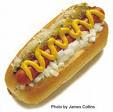


I might be slightly neurotic but I am nervous of a bunch of food with my kids. I even get nervous when other people feed their own kids this list of foods. I almost end up holding my breath waiting for something bad to happen when I see any of these food not diced up or in tiny tiny pieces and fed to babies and toddlers. Here in an article I just found which proves my point!!! Here is my list. I am aware I may need help lol but add to my list if I mess anything you know of.
Hot dogs ~ need to be sliced the long way and cut up because they are around the exact size of a baby/ toddlers airway.
Grapes ~ need to be sliced the long way and cut up because they are around the exact size of a baby/ toddlers airway.
Apples ~ bite sizes are solid and can easily lodge in throats.
Oranges ~ They may not chew the piece apart enough and the the stringy pulp does not let loose while one part stays in the mouth and the rest is trapped only part way down the pipe.
Steak ~ tough to chew and often not chewed enough while swallowing and talking/ laughing at meals.
Round Cheese sticks ~ need to be sliced the long way and cut up because they are around the exact size of a baby/ toddlers airway.
Cheese chunks (sold in squares) They are too large for little mouths and when chewed a little stay as a lump, which can also get caught.
Carrots ~ need to be sliced the long way and cut up because they are around the exact size of a baby/ toddlers airway.
Ice of all types ~ for obvious reasons and it does not melt fast enough to prevent choking.
Tortilla chips and nacho chips like Doritos ~ they can chew them well enough and not only choking they can stab tops of mouths and gums!!
Popcorn ~ not sure why yet but dogs should not have it either. I have to go read why.
Another tidbit I found on consumer reports
POTENTIAL HAZARDS
Here are some foods to watch out for:
Rounded, small, or slippery foods. They can slip right down the throat and lodge at a narrowed spot. Such foods include baby carrots, grapes, and raisins.
Firm, but pliable, foods. Items like hot dogs, sausages, and frozen banana pieces can conform to the shape of the throat and lodge there.
Light, dry foods. Snacks such as popcorn, tortilla chips, potato chips, and pretzels can get stuck in the throat, as can hard produce (including those with tough or dry skins), such as raw apples and carrots.
Chewy, sticky foods. These might not be manageable for very young children. They include caramels, gum, gummy bears, fruit "leather" (such as Roll-Ups), dollops of peanut butter, and cheese slices or cubes.
Stringy foods, like celery or spaghetti, may also be hard for little ones to manage.
If a food is tough to chew, like steak or bagels, children might try to swallow pieces whole--an obvious hazard. Steak, chicken, or other meats with bones are also hazardous.
Some medications, including those for teething pain, can numb the mouth and throat muscles, so talk to your child's pediatrician about the safest way to feed your child.
TIPS FOR PARENTS
These easy steps can help prevent choking:
* Don't put cereal in a baby's bottle.
* Place children upright in a comfortable high chair or booster seat with a table surface that provides support.
* Keep portions small. Give your child more if he or she wants it. For spoon-fed babies, wait until the mouth is clear before giving the child more food.
* For children ages 4 or younger, make sure solid food is cut into pieces smaller than half an inch. Round foods like hot dogs and grapes should be cut in half.
* Cook foods such as pasta, rice, beans, and hard vegetables until soft.
* Avoid feeding small foods like nuts to young children. They have few (if any) molars to grind them, and could choke if they unexpectedly laugh or take a deep breath and inhale them.
* Watch for "chipmunking"--when a child fills his cheeks with food and doesn't swallow it.
* Keep older children from handing easy-to-choke-on foods or small objects to younger children.
* Limit distractions during meal time, such as TV, pets, and game-playing, so children can focus on their food.
* Never leave a child alone while eating.
* Don't feed a child in a car or bus. It will be hard for a driver to pull to the side of the road fast enough to help a choking child.'
You can find the rest of the article here

No comments:
Post a Comment